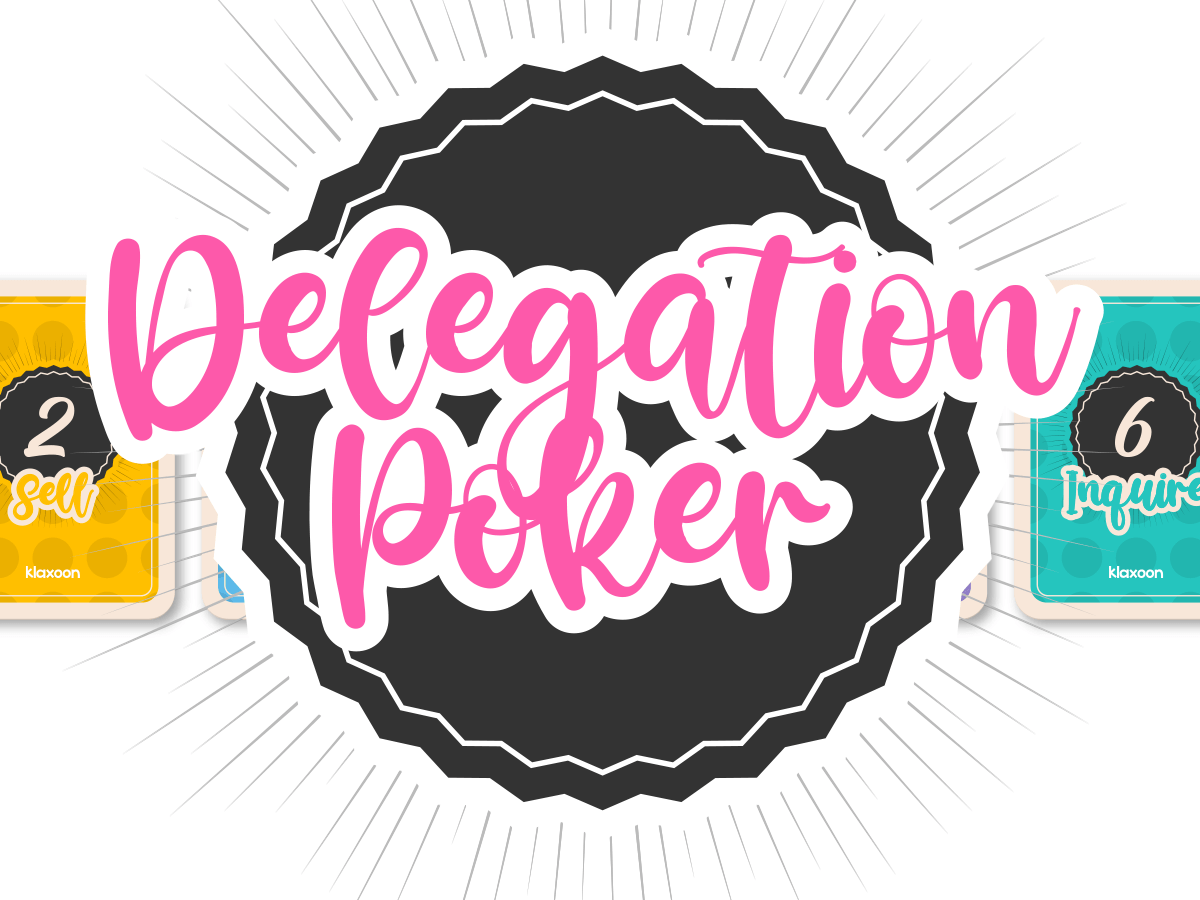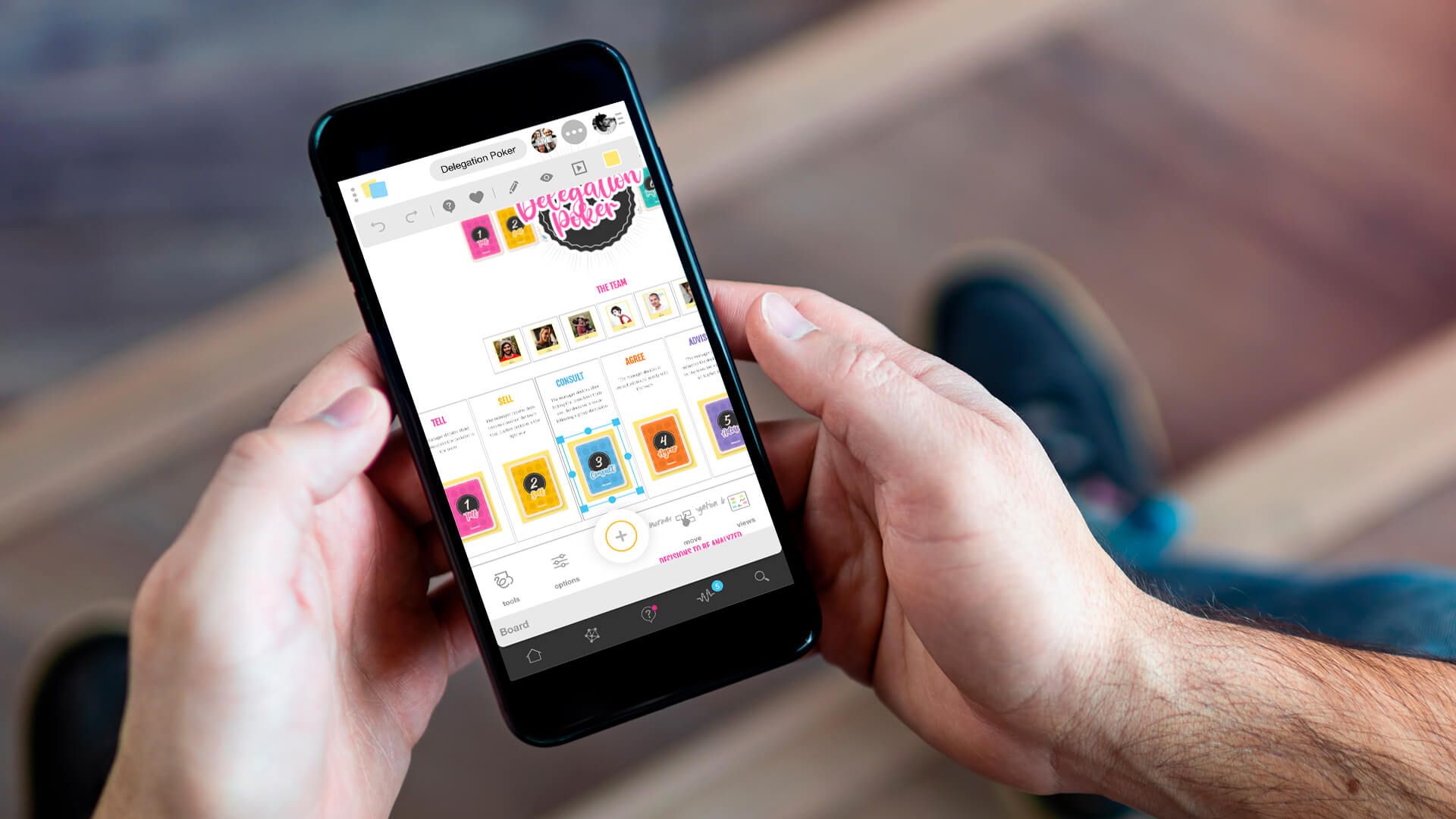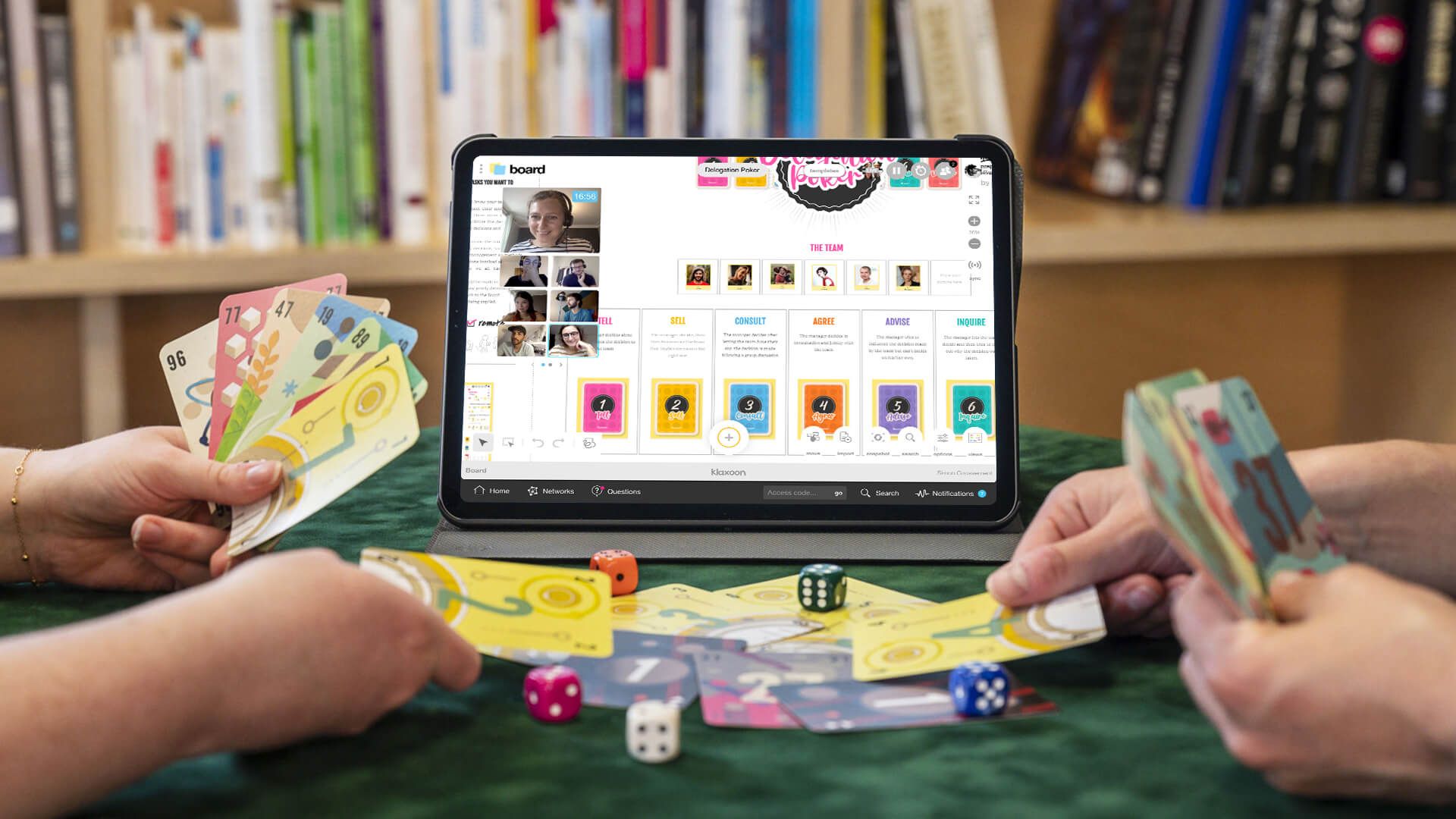Delegation Poker: delegating decision-making as a team with management 3.0
Published on February 14, 2025
Delegation Poker: delegating decision-making as a team with management 3.0


With the “Delegation Poker” template, the manager and his/her team agree on decision-making processes by setting a delegation level.
Why delegate and how to go about it? That’s the million dollar question for managers! The Delegation Poker workshop is based on management 3.0, and was popularized by Jurgen Appelo. What’s the purpose? Deciding as a team what to delegate and to what extent. Why delegate and assign tasks to your team members? How do you use the Delegation Poker template? Read all about this workshop and how it can help empower your team.
Top-down management is now a thing of the past: management 3.0 is what it’s all about. Managers and the rest of the team now work together to achieve common goals. Information flows both ways. Collaboration, communication and transparency are the corner stones of new management practices. Everybody shares the same objectives. Management 3.0 promotes empowerment and a sense of initiative: this is covered in the Delegation Poker workshop as a card game. Games are now part of the manager’s new set of tools. They promote and prompt team interaction. Besides being fun, games give the team a specific objective to work on.
This management tool is recommended to increase team empowerment, in particular if you’re moving towards more agile forms of management. It can also be used when the delegation mode is unclear and when tasks are not officially assigned to given team members. If the manager and the rest of the team are not on the same page, outcomes the Delegation Poker game!
The delegation level assigned to a decision is jointly decided with all the parties involved. This means that, contrary to top-down management, the decision is discussed and the manager doesn’t just hand down the decision. The team feel fully engaged and responsible, instead of just being told to get on with it.
The delegation process is incremental. Discussing it as a team will help to implement it smoothly and efficiently, with the consent of all parties involved, taking on board everybody’s opinions and ideas, while acknowledging the wider context.
Why delegate powers to a team member? Delegating empowers the team, which is also beneficial for the manager. Empowering your team means having more time to devote to other tasks, rather than spending your time managing, deciding and supervising what everybody is doing. It means being available to focus on other projects.
When asked what delegating means, you’d be naturally inclined to say it means getting somebody else to do something for you...but it’s not that simple. There are different levels of delegation, and that’s exactly what the Delegation Poker workshop is about.
The workshop lists seven delegation levels to describe how the team and management interact. These levels are covered by seven digital cards in the Klaxoon template.
Below are the seven delegation levels, in ascending level of importance.
The delegation levels are represented on cards numbered from 1 to 7. All team members have the same set of 7 cards. Various issues relevant to the team are addressed during the Delegation Poker workshop. They can range from launching a campaign on social media to recruiting a new team member, testing a prototype, assigning holidays, etc. Whatever the decision to be taken, the team discusses the matter and agrees on the right delegation level. Then the new delegation process is implemented.
The workshop follow-up is key, to make sure that the decision is being properly applied. There must be room for second thoughts if the chosen process appears to be unsuitable.
Click on “Use the template” to run it and to get to know how it works. Invite your team to join the Board in one click! Is everyone logged on to digital whiteboard and its unlimited space? Run a 30 minute Live session. Live is Board’s built-in video conferencing tool!
Ask everyone to send a selfie with their first name so you can see who’s who and liven up your Board. Then, the players read the cards and learn about the different delegation levels.
Ask everyone to take 5 minutes to think about the subjects they’d like to talk about during the workshop, and post their ideas in the dedicated space. Everyone comes up with their own subjects to be discussed, and everything can be called into question.Use the Timer feature while everyone takes time to think about the issue: after 5 minutes, the alarm goes off and ideas can no longer be posted! When the time’s up, everyone reads all the ideas and likes their top 4 decisions.
The most popular ideas a read dressed. We suggest that you pick 4 at a time, but you can of course adapt the template. The templates and the Board are changeable and customizable at any time. They’re not set in stone!
Now it’s time to analyze the decision-making process. First, ask yourself the following question: “How is this decision currently made?” Everyone moves their avatar below the card they think best represents the current process. Then the players vote for the delegation level they want to achieve for each future decision. The card with the most votes wins.
Players can go back to theBoard at any time to check on the decisions made. A follow-up question is open below each decision. This way, players can discuss a delegation mode that has not been applied, suggest a change of level, etc. Stay open to discussion. Communication and collaboration are the driving forces behind effective teamwork!


This kind of delegation process leads to efficient team self-management. Responsibilities are no longer shifted onto one person’s shoulders: they are taken jointly. Delegation Poker is a powerful team empowerment tool. Agile project management is ideal for this particular workshop. Get started now!
You’re now ready to try another management 3.0 game: go to the Moving Motivators template!


Get inspired by other templates from the same categories
Unlock your teamwork potential